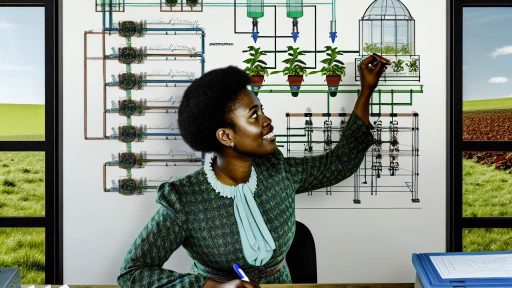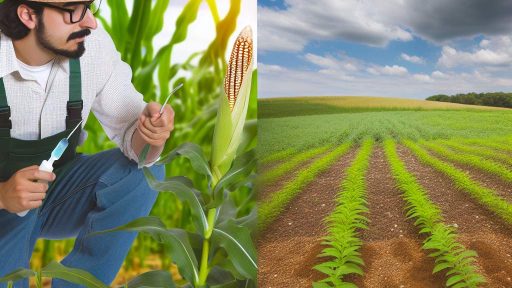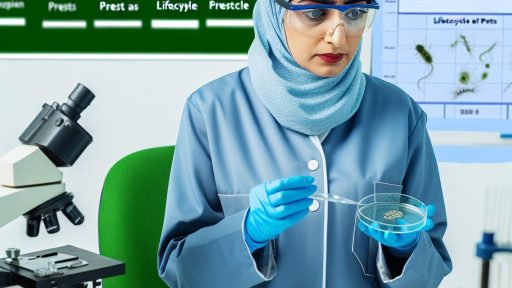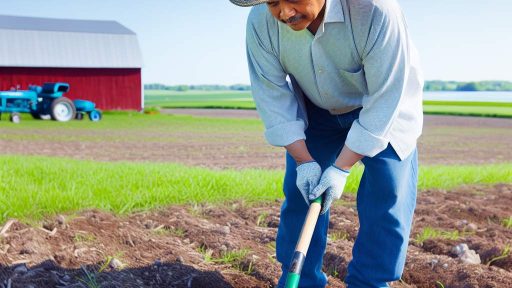Introduction to Drones in Agriculture
Drones are transforming the agricultural landscape.
They provide innovative solutions for farmers worldwide.
Integrating drones enhances efficiency and sustainability.
Overview of Drone Technology
Drones utilize advanced technology for various agricultural tasks.
Farmers can monitor crops and assess field conditions easily.
Furthermore, they can collect data from hard-to-reach areas.
Importance of Drones in Agriculture
Drones contribute significantly to precision farming practices.
They help reduce resource waste by optimizing inputs.
This technology also enables timely interventions in crop management.
Benefits of Using Drones
- Drones improve crop surveillance and health monitoring.
- They assist in soil analysis and mapping.
- Additionally, drones can efficiently survey large fields.
Enhancing Sustainability
Drone technology promotes sustainable farming practices.
It minimizes the use of chemicals and reduces environmental impact.
Moreover, it contributes to better water management and conservation.
The Role of Drones in Precision Farming: Enhancing Efficiency
Introduction to Drones in Agriculture
Drones have revolutionized agriculture in recent years.
Farmers now utilize this technology for various tasks.
These tasks include monitoring crop health and optimizing resource use.
Transform Your Agribusiness
Unlock your farm's potential with expert advice tailored to your needs. Get actionable steps that drive real results.
Get StartedBenefits of Drone Usage
Drones enhance precision farming significantly.
They provide real-time data on crop conditions.
This data helps farmers make informed decisions quickly.
For example, drones can identify areas needing intervention.
Consequently, farmers can allocate resources more efficiently.
Types of Drones in Precision Farming
Various types of drones serve different agricultural purposes.
- Aerial imagery drones collect visual data of fields.
- Multispectral drones assess plant health through light analysis.
- LiDAR drones create detailed terrain maps for planning.
Each type caters to specific farming needs and challenges.
Drones in Crop Monitoring and Disease Detection
Monitoring crops is a primary application of drones.
They can quickly cover vast areas, providing timely updates.
Drones utilize sensors to detect signs of diseases early.
This capability prevents widespread crop loss effectively.
Environmental Considerations
Utilizing drones in farming aligns with sustainability goals.
These devices reduce the need for chemical applications.
Farmers can apply fertilizers and pesticides only where required.
As a result, drones contribute to minimizing environmental impacts.
Economic Impact on Farming
The integration of drones can lower operational costs.
Farmers save time and resources through improved efficiency.
Additionally, enhancing crop yields directly benefits profitability.
Thus, drones represent a crucial investment for modern agriculture.
Types of Drones Used in Sustainable Farming
Aerial Imaging Drones
Aerial imaging drones capture high-resolution images of crops.
These drones enable farmers to assess crop health quickly.
They also provide timely data to make informed decisions.
Farmers can spot issues like pest infestations early.
Additionally, these drones help monitor irrigation patterns effectively.
Showcase Your Farming Business
Publish your professional farming services profile on our blog for a one-time fee of $200 and reach a dedicated audience of farmers and agribusiness owners.
Publish Your ProfilePrecision Agriculture Drones
Precision agriculture drones optimize input usage like water and fertilizers.
They utilize sensors to gather data on soil conditions.
This data enhances the efficiency of resource allocation.
Ultimately, these drones increase crop yields sustainably.
Planting Drones
Planting drones automate the seeding process in fields.
They are particularly effective in hard-to-reach areas.
Using planting drones saves time, which is crucial during planting season.
Moreover, they can plant diverse crop varieties simultaneously.
This technology promotes biodiversity within agricultural systems.
Spraying Drones
Spraying drones apply nutrients and pesticides precisely.
These drones ensure minimal chemical use, reducing environmental impact.
Moreover, they cover extensive areas quickly and uniformly.
Using spraying drones enhances the efficacy of crop treatments.
Benefits of Drone Integration
Integrating drones in farming practices increases operational efficiency.
Farmers save time and resources by minimizing manual labor.
Furthermore, drones enhance crop monitoring and management.
They provide data that leads to better farming practices.
Drones contribute to more sustainable agricultural environments.
Explore Further: How Farm Management Software Enhances Crop Planning Efficiency
Integrating Drones with Other Technologies
Enhancing Monitoring Systems
Drones provide real-time aerial imagery for farms.
Farmers can assess crop health quickly using this data.
Additionally, drones can help identify pest infestations early.
This timely information allows for prompt intervention.
Furthermore, aerial views enhance irrigation management.
Combining IoT Solutions
The Internet of Things (IoT) plays a vital role in farming.
It connects various devices to facilitate seamless communication.
Drones equipped with IoT sensors gather valuable data.
This data includes temperature, humidity, and soil moisture levels.
Subsequently, farmers receive comprehensive insights into conditions.
Leveraging Data Analytics for Improved Decisions
Data analytics transforms raw information into actionable insights.
Farmers can analyze historical data to predict trends.
By utilizing predictive analytics, they optimize crop yields.
Moreover, data-driven decisions reduce waste and resource usage.
This approach enhances overall farm productivity significantly.
Integrating with Precision Agriculture
Drones complement precision agriculture methodologies effectively.
They enable precise application of fertilizers and pesticides.
This minimizes chemical usage and prevents over-application.
Consequently, this lowers input costs and environmental impact.
Additionally, it fosters healthier crop growth and better yields.
Collaboration Between Technologies
Collaboration between drones, IoT, and analytics is essential.
Showcase Your Farming Business
Publish your professional farming services profile on our blog for a one-time fee of $200 and reach a dedicated audience of farmers and agribusiness owners.
Publish Your ProfileThis synergy drives innovation in sustainable farming practices.
Farmers benefit from comprehensive management solutions.
Ultimately, it leads to a more resilient and efficient agricultural system.
Discover More: Maximizing Crop Yields with Controlled Environment Agriculture
Case Studies of Successful Drone Integration in Sustainable Farming
Precision Agriculture with Drones
Drones enhance precision agriculture by providing real-time data.
Agricultural researcher Emily Tran used drones for crop monitoring.
Her findings improved yield predictions and resource allocation.
Farmers adjusted irrigation based on drone data and saved water.
This smart use of drones resulted in a 15% increase in yields.
Crop Health Monitoring
Drone technology plays a key role in crop health monitoring.
The Green Valley Farms team employed drones to assess plant health.
They identified areas needing pest control or water management.
This method lowered pesticides and fertilizers used by 20%.
Consequently, crop quality significantly improved, satisfying market demands.
Soil and Field Analysis
Using drones for soil analysis promotes sustainable practices.
Farm tech company AgriVision incorporated drones for soil mapping.
These drones collected data on nutrient levels and moisture content.
Farmers could then apply precise amendments to improve soil health.
As a result, they experienced reduced chemical runoff into water sources.
Efficient Reforestation Efforts
Drones have also transformed reforestation processes.
EcoSolutions utilized drones to distribute tree seeds over burned areas.
This method allowed for quick and wide distribution of native species.
Notably, germination rates increased due to accurate seed placement.
Ultimately, this initiative restored ecosystems and enhanced biodiversity.
Data Collection for Research
Drones facilitate data collection for agricultural research initiatives.
The Farming Innovations Group gathered aerial data for crop trials.
They monitored growth patterns and crop responses to various treatments.
This information supported the development of resilient crop varieties.
Consequently, agricultural sustainability improved within the region.
Find Out More: Streamlining Agricultural Payments Using Blockchain Technology
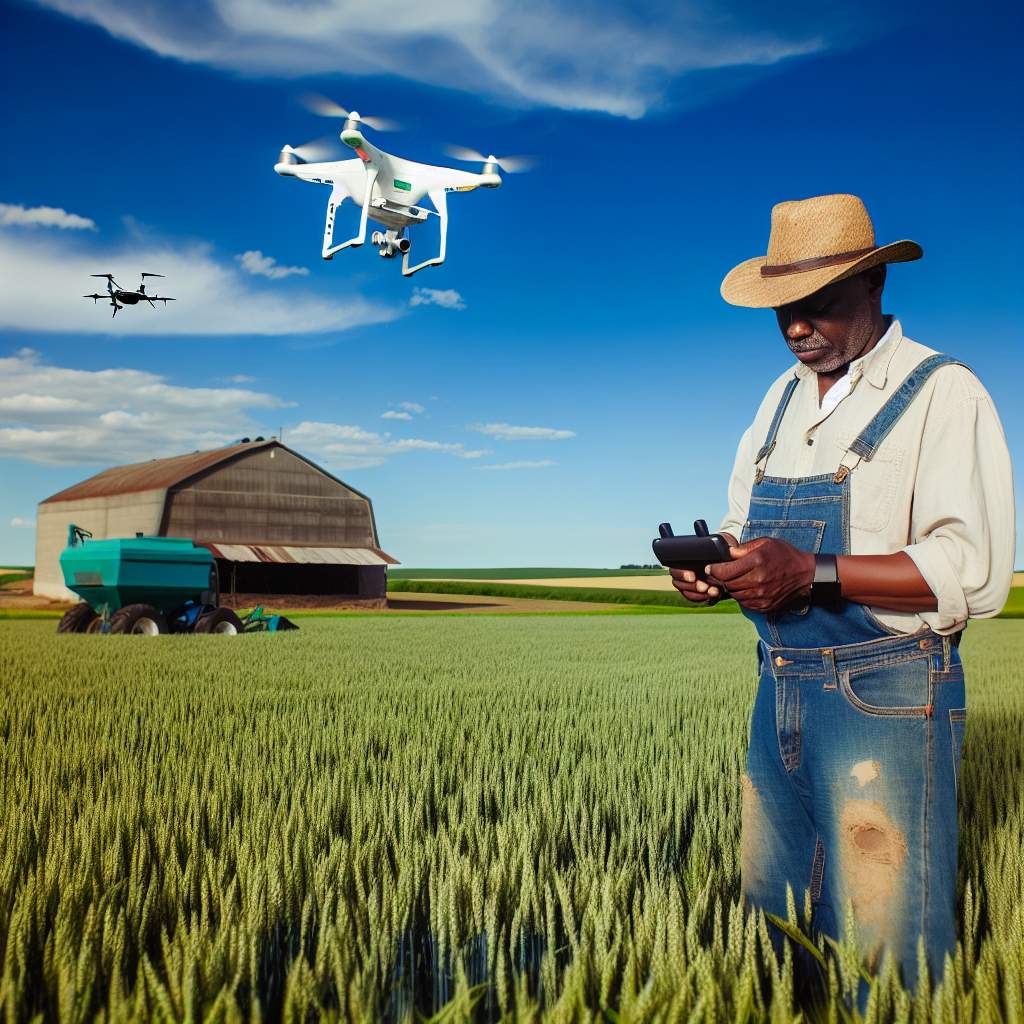
Regulatory Considerations and Safety Measures for Drone Usage
Understanding Drone Regulations
Drone regulations vary by country and region.
Farmers must familiarize themselves with local laws.
Compliance ensures safe and legal drone operations.
Authorities like the FAA provide guidelines in the U.S.
These regulations often cover flight altitudes and airspace restrictions.
Necessary Certifications and Licenses
Many jurisdictions require drone operators to obtain licenses.
This typically involves passing a knowledge test.
Certifications ensure operators understand safety protocols.
For example, the Part 107 certificate is essential in the U.S.
Farmers should keep their certifications updated regularly.
Showcase Your Farming Business
Publish your professional farming services profile on our blog for a one-time fee of $200 and reach a dedicated audience of farmers and agribusiness owners.
Publish Your ProfileSafety Measures for Drone Operations
Safety should be a paramount concern for all drone operations.
Before flights, operators must conduct thorough pre-flight checks.
These checks help to identify any mechanical issues.
Implementing a checklist can streamline the process.
Operators must also monitor weather conditions closely.
Maintaining Privacy and Security
Privacy is a significant concern when using drones.
Farmers should respect the privacy of neighboring properties.
Establishing boundaries for drone operations can help with this.
Additionally, using drones equipped with security features is wise.
These features can assist in safeguarding farm data.
Liability and Insurance Considerations
Operators should be aware of potential liabilities when using drones.
It is advisable to obtain commercial insurance for drone activities.
This insurance can provide financial protection against accidents.
Evaluating the risks involved in drone operations is crucial.
Farmers may also want to consult legal experts.
Gain More Insights: Sustainable Agriculture Through Biotechnology Innovations
The Environmental Impact of Drones: Reducing Chemical Use and Emissions
Drones in Precision Agriculture
Drones revolutionize precision agriculture by providing accurate data.
Farmers can monitor crop health more effectively with aerial imagery.
This technology allows for targeted treatment of crops.
Consequently, it significantly reduces the need for chemical applications.
Minimizing Chemical Use
Drones facilitate the application of fertilizers and pesticides precisely.
Farmers can apply these chemicals only where needed.
This targeted approach minimizes waste and environmental impact.
As a result, it reduces the overall quantity of chemicals used.
Furthermore, this method lowers the risk of runoff into nearby water sources.
Reducing Carbon Emissions
Using drones can lower fuel consumption during field operations.
Traditional farming methods often rely on heavy machinery.
In contrast, drones can cover large areas quickly and efficiently.
This efficiency leads to reduced carbon emissions.
Consequently, farmers can contribute to climate change mitigation.
Enhancing Crop Management
Drones improve crop management strategies significantly.
They provide real-time data on crop conditions.
This information helps farmers make informed decisions.
As a result, crops receive appropriate irrigation and nutrients.
Moreover, this proactive approach prevents over-fertilization.
Supporting Biodiversity
Drones support biodiversity in farming environments.
By reducing chemical use, they help maintain ecological balance.
This approach creates healthier habitats for beneficial insects and animals.
Consequently, it promotes natural pest control mechanisms.
Overall, drones serve as crucial tools in sustainable farming practices.
Showcase Your Farming Business
Publish your professional farming services profile on our blog for a one-time fee of $200 and reach a dedicated audience of farmers and agribusiness owners.
Publish Your ProfileFuture Trends in Drone Technology and Its Implications for Sustainable Agriculture
Advancements in Drone Design
Recent improvements in drone design enhance their functionality in agriculture.
Manufacturers now produce drones that are lighter and more efficient.
This leads to increased flying time and lower energy consumption.
Moreover, advanced materials make drones more resistant to environmental impacts.
Integration of Artificial Intelligence
Artificial intelligence is transforming drone capabilities significantly.
AIs now analyze data in real-time for better decision-making.
This allows farmers to identify problems early in the growing process.
Consequently, farmers can optimize resource use and improve yields.
Precision Agriculture Techniques
Drones are becoming vital tools for precision agriculture.
They provide high-resolution imagery for crop monitoring.
Farmers can assess plant health and soil conditions accurately.
Ultimately, this leads to more targeted interventions and reduced waste.
Regulatory Developments
Regulations surrounding drone usage in agriculture are evolving rapidly.
Governments are establishing clearer guidelines for operation.
This framework supports safer and more responsible drone use.
Furthermore, it encourages wider adoption among farmers.
Impact on Sustainable Practices
The integration of drones promotes sustainable farming practices efficiently.
Farmers can reduce pesticide use and apply fertilizers precisely.
This minimizes environmental contamination while maximizing crop health.
Moreover, drones facilitate better water management strategies.
Future Market Trends
The drone market in agriculture is expanding swiftly.
More farmers are investing in drone technology for their operations.
As costs decrease, accessibility increases for small-scale farmers.
This trend fosters innovation and collaboration in sustainable practices.

